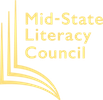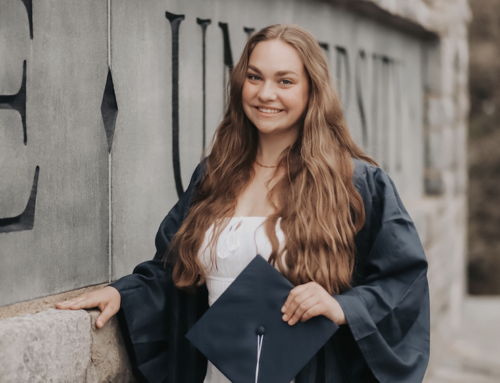There are over 7,000 languages spoken in the world, crossing cultural lines and intertwining the lives of people from across the globe. In a country like the United States, the English language dominates, making it difficult to get by without having a fundamental understanding of its conventions. With 14.3% of the US population being immigrants, there are thousands of individuals with diverse linguistic, cultural, and educational backgrounds that often experience challenges navigating daily life in the US.
Mid-State Literacy Council (MSLC) works to bridge this gap for the local community of individuals who wish to improve their practice of the English language. The English Language Learning (ELL) program supports students of all proficiency levels, ranging from true beginner to advanced, helping these students build confidence in their skills and developing a sense of belonging in a new cultural environment.
Ash Mayes, MSLC’s English Language Learning Coordinator, has been working with the organization for two semesters and helps to orchestrate the best learning plan for each student.
“I work with all of my students, whether they’re new, incoming students, or returning students needing specific things. I get to know them, identify their English Learning needs and their goals, figure out the ways that our programming can best support them, and help get them into those specific programs,” Mayes said.
These specific programs include group classes intended to build confidence in speaking, listening, reading, writing, and cultural competency, and one-to-one tutor pairs which allow for an opportunity to hone specific areas of the English language depending on individual needs and goals. Based on enrollment testing and an in-depth interview, students are advised on the program that will best help them achieve their goals..
Former volunteer tutors and current teachers Karen Dabney and Jenna Krick co-teach the Intermediate Everyday English class. This course provides helpful fundamental knowledge about not only grammar and pronunciation, but niche cultural aspects of American life as well.
Krick gives in-depth instruction on health literacy with important details to know when living in a new community, such as what to do in an emergency or how to effectively call 911. Dabney works on increasing proficiency in all aspects of language, though more specifically in listening and speaking.
Dabney was initially unsure in teaching a class as she had grown used to the tight-knit setting of her one-to-one tutor pair. Despite this initial uncertainty, she has grown to love teaching in the larger class environment and the people that she has been able to meet.
“I feel that I learn so much from [the students] because they’re coming with the knowledge of their culture,” Dabney said. “It’s wonderful to learn other people’s perspectives from them, instead of just relying on the news or your own guesses. You get to have a sense of the beauty of their ways of doing things, their traditions, their holidays that I don’t know that you would get unless from them.”
The students are encouraged to bring their culture with them and learn how to be confident enough in English comprehension that they can be themselves in their native language(s) as well as English, as Dabney describes and hopes for each student.
There is also the ability in both tutor-pairs and larger classes to make mistakes and learn through doing, so that each student can retain the information by trial and error. Mid-State Literacy Council welcomes each student to be daring, work hard, and collaborate with other students to further their English literacy while not imposing burdens on the participants for being unsure or incorrect.
Students such as Marta Besòs find that while there is still work to be done after two semesters at Mid-State, she can feel herself improving and is proud of her progress.
“I feel that now, in the moment, I can understand more English than when I arrived. I can explain more things and I can feel that I am improving a little, so I am happy about that,” Besòs said. “I feel comfortable and I could feel at home in a country where I am alone. Not alone, I have my family, but I don’t know other people here.”
This program is also mutually beneficial for the volunteers that take part in it. By interacting with so many students who are actively growing before their eyes, volunteers can feel rewarded to know that they were able to positively impact someone’s life.
Dabney finds you can learn about yourself and cultures you may have never been able to have insight on otherwise. The nature of the organization is welcoming so that all people, volunteers or students, can find their place while also finding their words.
“It’s awesome to be a part of the Mid-State Literacy Council and if anyone is thinking about volunteering or taking classes, I would encourage them to give it a try,” Dabney said. “It’s a really warm and accepting environment. It focuses on empowering people to be able to use the English language better and live in our American culture better.”
Mayes highlights the importance of the mission of volunteers, and also how being a part of MSLC can be a unique learning experience for both students and teachers.
“We’re really dedicated to helping everyone involved in our organization grow as a person,” Mayes said. “They can grow in their skills and improve their quality of life with the tools that we provide each other by working together.”



